Fear And Laughing in Riyadh
A dispatch from my time watching stand-up comedy in Saudi Arabia
Happy Thursday!
Don’t adjust your Substack, this is a bonus edition of the newsletter, a day early, because I have a new longread out with The Atlantic—watching Jimmy Carr and Louis C.K. do stand-up comedy in Saudi Arabia. Yes, everyone else on the internet just talked about the Riyadh Comedy Festival. I actually went to it.
Below, you’ll find a taster of the piece and some behind-the-scenes photos and extras.
Helen
How Many Comedians Does it Take to Change A Country?
Sometimes you have to ask yourself: How did I get here—sitting in Saudi Arabia, listening to Louis C.K. do jokes about Barely Legal magazine?
Honestly, I thought it would be funny. The instant I heard about the Riyadh Comedy Festival, I pleaded with the editor of this magazine to send me. Despite a series of legal reforms over the past decade, Saudi Arabia remains one of the most conservative Muslim societies in the world, while Louis C.K. is famous for his foul mouth and his record of masturbating in front of a succession of unimpressed women. A match made in heaven!
My boss suggested that I take a male chaperone, which would allow me to move more freely in a place that remains deeply segregated by sex. Sadly, my husband declined to use his precious vacation allowance on the trip, and my 80-year-old father would rather stay home in England and watch cricket. And so my long-suffering editor, Dante, stepped up instead. Our presence would be a test of how much Saudi Arabia has really changed: I’m on my second husband; Dante is on his first. Both of us have freely and sometimes enthusiastically committed what are technically capital offenses under Saudi law.
The editor in chief, clearly beginning to enjoy himself, urged us to stay at the Ritz-Carlton. That’s the very luxurious but also Shining-like hotel where Saudi Arabia’s crown prince imprisoned his rivals in 2017—room service was included, plus a bit of light torture—completing his ascent to absolute power. The trip would be like something out of Hunter S. Thompson, our boss said, with one difference: no drugs. Our being beheaded by sword, the usual method of execution in Saudi Arabia, would be bad publicity for The Atlantic, and leave the magazine down an editor at a time when we are already shorthanded. We had, he implied, plenty of writers to spare.
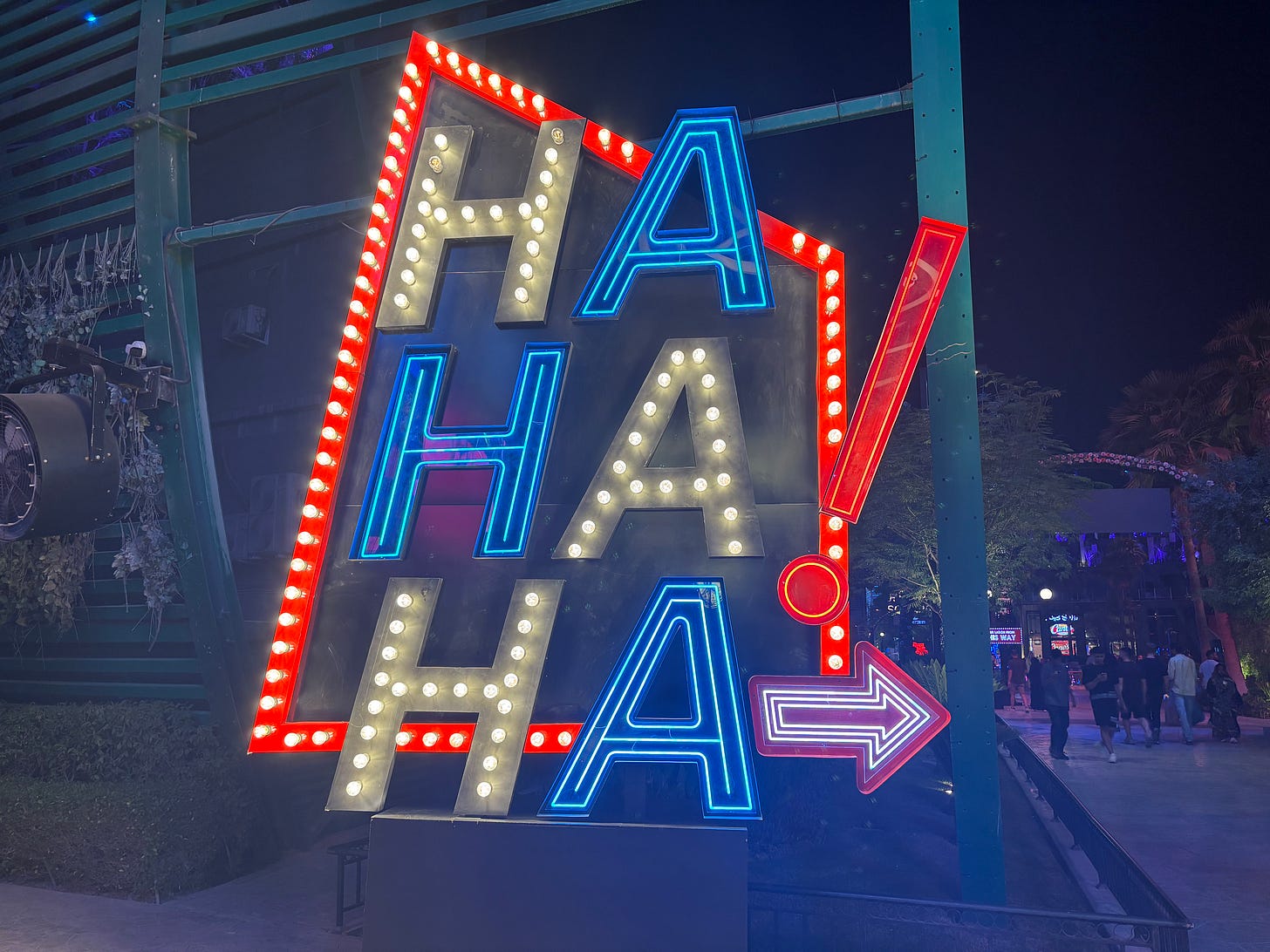
I found Saudi Arabia fascinating; how many other nations can you name where a single person—in this case, Mohammed bin Salman, the 40-year-old crown prince—suddenly declares that the country will not be how it was before, and drags the lives millions of people in an entirely different direction?
Enver Hoxha in communist Albania, maybe?
The scale of Saudi Arabia’s cultural transformation cannot be overstated. The religious police used to be ubiquitous and terrifying. In the 1990s, one of the senior clerics issued a fatwa decreeing that the earth was flat, leaving a Saudi prince who became an astronaut saddled with the unenviable job of gently contradicting him. The Harry Potter books were banned for years, and the Ministry of Interior set up an anti-witchcraft unit as recently as 2009.
Now, though, the religious police are neutered, everyone accepts the earth is round, and last year there was a pop-up Harry Potter World in Riyadh. This is not a country that wants to be a secular, liberal western democracy. But it does want to be put in the same class as other Gulf countries—the UAE, Qatar or Bahrain—that don’t overly trouble the consciences of American and European tourists and businesses.
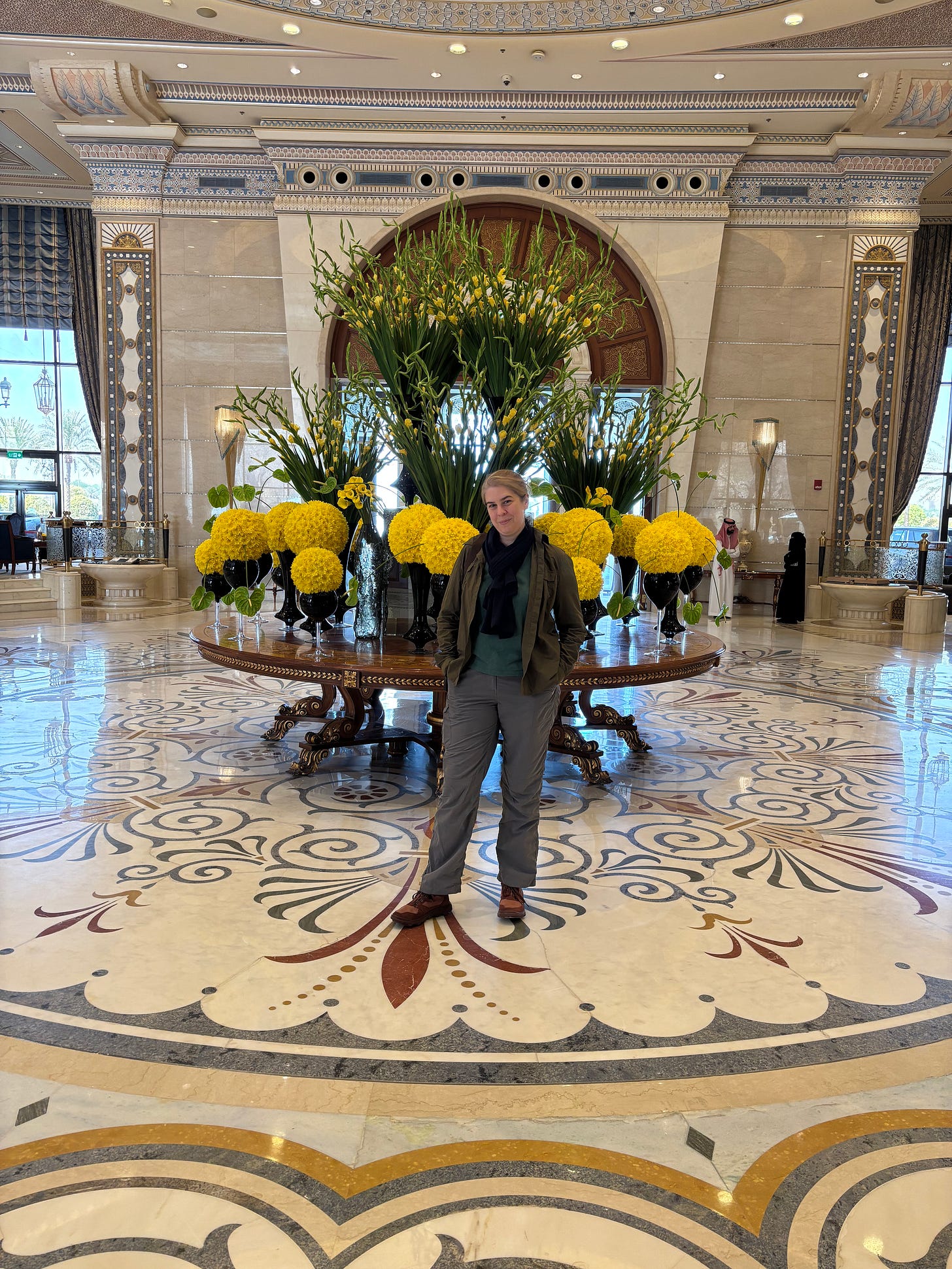
In Eight Months On Ghazzah Street, Hilary Mantel’s novel based on her time in Jeddah as the wife of a geologist in the 1980s, the rituals of landing in Saudi Arabia are carefully laid out to her by a fellow traveller. Everyone sneaks in a final whisky before the plane begins its descent. They are prepared for customs to confiscate the most random items—a book of limericks with a dirty picture, underwear made by a “Zionist” company, even videos of cricket matches. The air steward chips in to say that if her husband isn’t there to greet her, she should get on the bus with them and go to their hotel to wait for him, because no taxi driver will pick her up.
“But he’s a taxi driver,” she replies. “That’s his job, picking up strange people.”
“But you’re a woman,” the steward says, “You’re a woman, aren’t you? You’re not a person any more.” Then he offers her more champagne.
Saudi Arabia used to be notorious for the restrictions it placed on women: they couldn’t drive or walk around with their heads uncovered, and needed a husband or male relative to give them permission to work or travel. Today, it’s far from a feminist paradise, but far more women go to work—most of the border staff I saw at the airport were efficient women in niqabs, and we travelled in a Family carriage of the Riyadh subway alongside dozens of professional women, watching videos on their phones. (Another surprise: I didn’t run into any restrictions on the English-language internet, and was able to read The Guardian, The Atlantic and Daily Mail on my burner phone just fine. When Jimmy Carr did a joke about OnlyFans, the audience in Riyadh laughed.)
At the same time, one of the most prominent campaigners for women drivers, Loujain al-Hathloul, was locked up around the time that women got that right: a very clear message to would-be activists that one man has been put in charge of Saudi’s Struggling Feminist Movement, thank you very much. In 2024, a women’s rights campaigner who took literally MBS’s relaxation of modesty laws was convicted of “terrorism” offences.
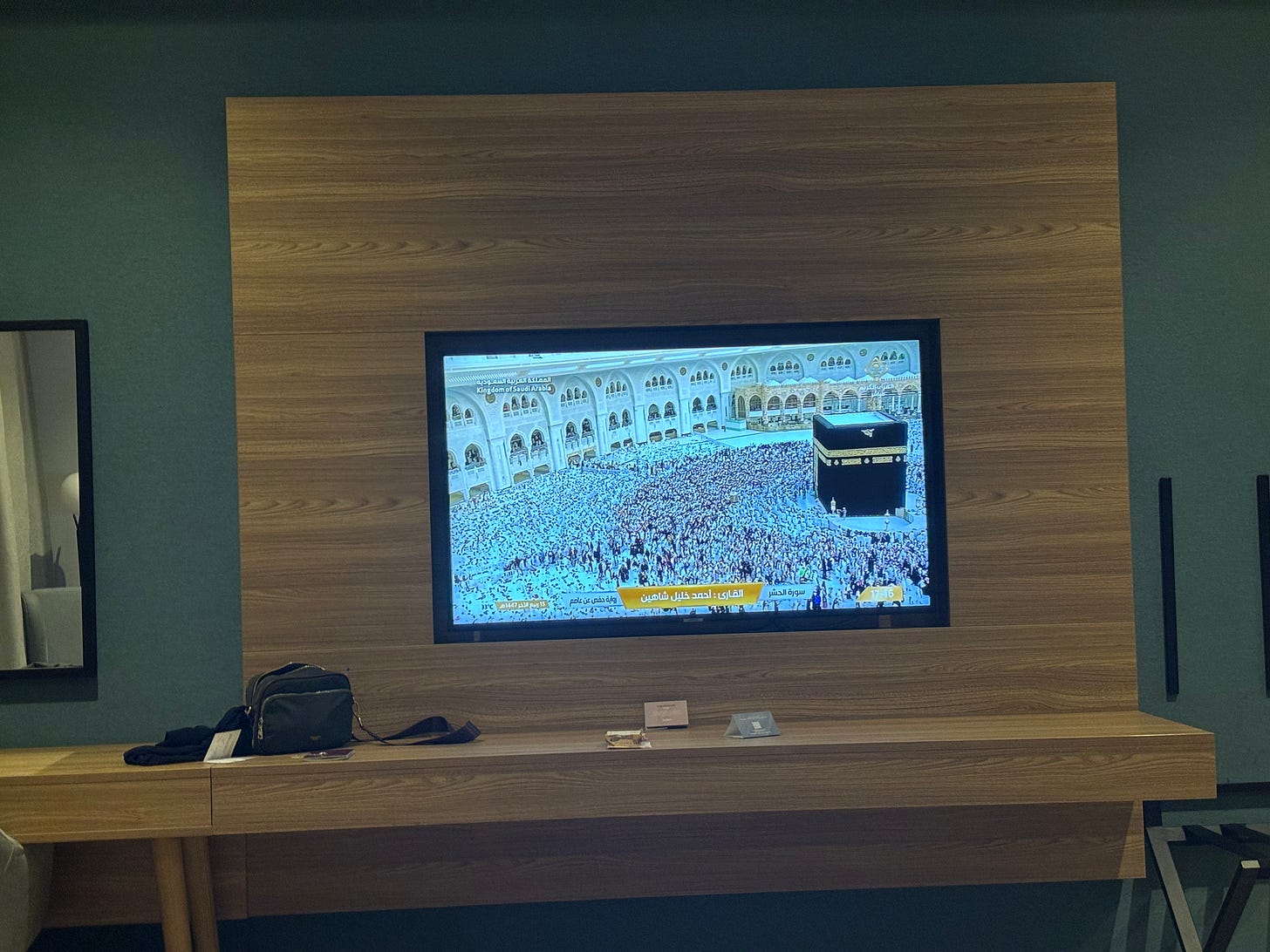
And so—you know what’s coming. How much of this “modernisation” is a superficial dusting of the country’s doorknobs, a big show of toleration and ease for the benefit of high-spending foreigners?
Quite a bit. There are quite clearly three cultures (and, effectively, legal regimes) running alongside each other in modern Saudi Arabia. One for citizens; one for tourists and expats; and one for migrant workers, who make up 40 percent of the population. (Three-quarters of those migrants are men.) As a western woman, I would have felt out of place in a hijab and abaya; at the same time, even in a big city like Riyadh, the resident women were routinely veiled and swathed in cloaks. You’ll have no problem staying with your same-sex partner in a five-star hotel in Riyadh, or a Red Sea resort; but while there’s long been a thriving underground gay scene, Saudis are still safer in the closet.
The basic rule for being either a rich westerner or a Saudi citizen is this: keep your head down. Gratefully accept the new liberal measures, but don’t question whether any more might be forthcoming—or agitate against the draconian legal regime that still persists. Saudi Arabia executed more than 300 people last year. It imposes the death penalty on those accused of dealing drugs. Its courts are opaque; reports of torture in detention are only too plausible; and anyone who criticises MBS (or the guy who organised the Riyadh Comedy Festival, Turki al-Sheikh) is liable to find themselves in prison. Blood and Oil, a very good book on MBS by two Wall Street Journal reporters, details the extremely uncomfortable story of how Saudi Arabian intelligence infiltrated Jack Dorsey’s Twitter and obtained the details of an anonymous account used to criticise the government1. A man behind similar criticism, Turki al-Jasser, was executed in June. This is the paradox of MBS: he has drastically liberalised everyday life, bringing malls and MrBeast and Riyadh Fashion Week and a Red Sea film festival, but he will not brook any dissent.
He wasn’t supposed to be crown prince; that was originally Muhammad Bin Nayef, his uncle. MBS isn’t one of his father Salman’s sons by his first wife—a group of urbane worldly men who spoke English from childhood and studied abroad at places like Oxford and Berkeley. He went to university in Saudi Arabia, learned English as an adult, and worked as an undistinguished junior minister.
Once his father was on the throne, though, he clawed his way to power by having his uncle escorted into a palace without guards or his phone, only to emerge several hours later and declare he didn’t really want to be crown prince, anyway. MBS pulled a similar trick on some of the country’s richest men when he detained them in the Ritz-Carlton and accused them of corruption, releasing them only after they’d sworn fealty to him and coughed up some money.
There is another reason that Saudi Arabia is such a distinctive country to visit: it is both rich (if unequal) and young. That combination is pretty rare: most countries are either old and rich, or young and poor. The MBS regime works for now because lots of people are doing well, and expect to do better in future2. As I said in The Atlantic piece, many Americans would take the trade of “Louis CK and a comfortable life” in exchange for not having the vote.
It’s not just the culture of Saudi Arabia that’s changing, but its physical appearance. Sketchy labour laws, visas dependent on having a job, no planning sub-committees and no Campaign to Protect Rural Riyadh? This is a YIMBY paradise! Someone go check on the blood pressure of
after seeing how many cranes there were in Diriyah, a suburb of Riyadh:The cranes suggest a more positive story about the comedy festival. Imagine being 20 years old in Saudi Arabia now, and feeling that your country is on the upward swing— about to transform from a strictly religious petrostate into a place of comedy clubs and coffee shops? Fingers crossed this works out. I’d like to believe that you can’t have MrBeast today without democracy tomorrow, but these days I’m not so sure.
Perhaps the weirdest thing is that Saudi Arabia isn’t just trying to build the future; it’s trying to build itself a past, too. The National Museum, which opened in 1999, attempts to tell the story of the country’s unification by the Sauds in heroic terms. Meanwhile, in Diriyah, work on the UNESCO world heritage site ruins is playing fast and loose with “restoration” and veering more towards “reconstruction”. Two big forces—the nomadic life of Bedouins and the idolatry-hatred of Wahhabist Islam—have conspired to leave the country a little light in the tourist site department3. But why let that be a problem? Simply will them into being!
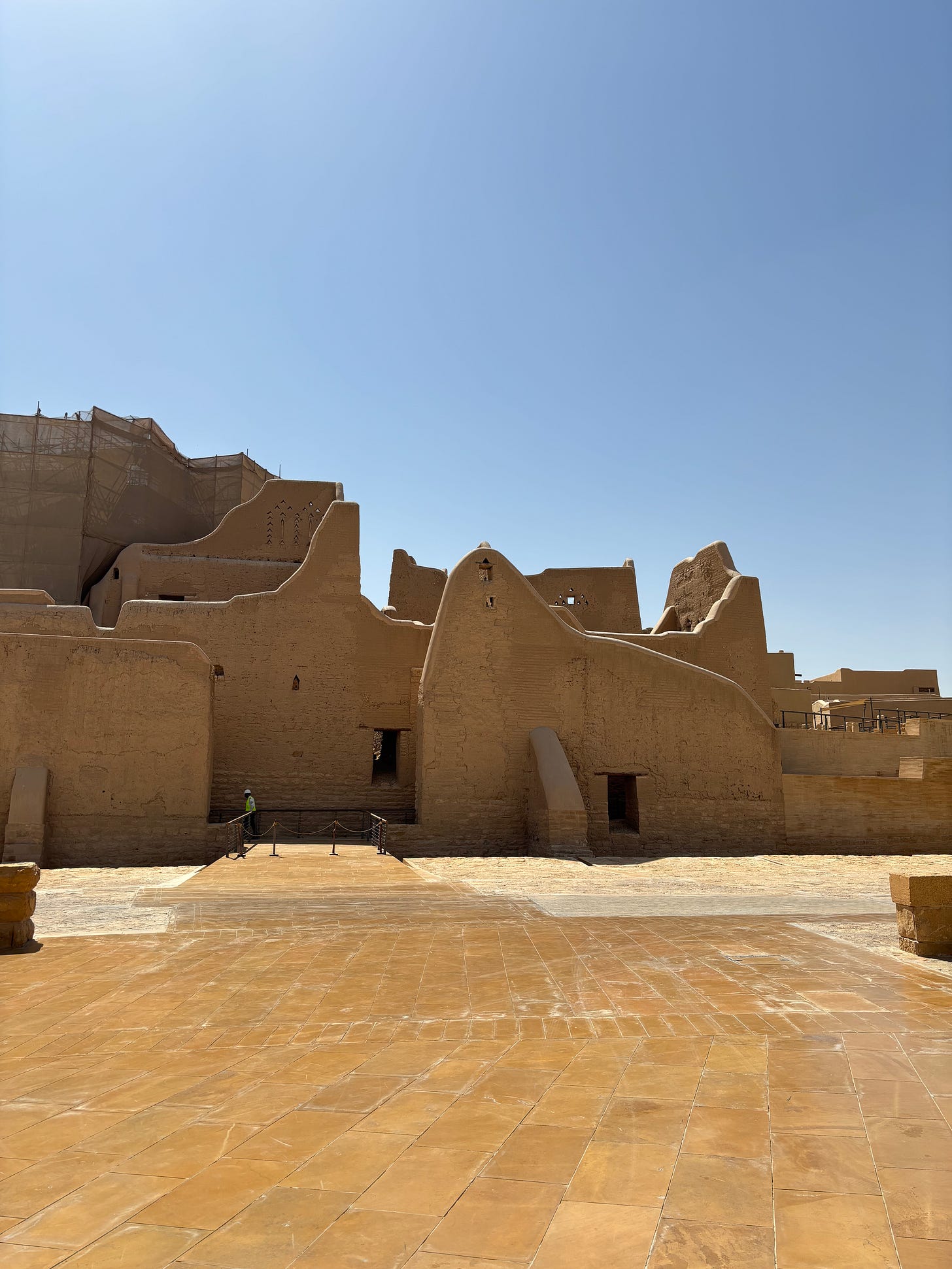
That’s enough for now; go read the article if you want the full account of my first (and, after publishing all this, only) visit to Saudi Arabia.
If you’re looking for further reading, Robert Lacey’s Inside The Kingdom gives the history from the 1970s to the 2000s, in a lively and colloquial way; Blood and Oil brings the story up to date.
My colleague Graeme Wood’s 2022 interview with Mohammed bin Salman is full of incredible incidental details, as well as sentences like this: “Salih al-Fawzan, the most senior cleric in the kingdom today, once issued a chillingly anti-American fatwa forbidding all-you-can-eat buffets, because paying for a meal without knowing what you’ll be eating is akin to gambling.”
If you have an Economist subscription, this 1843 profile of MBS is also great: “Embracing Western consumer culture doesn’t mean embracing Western democratic values: it can as easily support a distinctively modern, surveillance state. On my recent trips to Saudi Arabia, people from all levels of society seemed terrified about being overheard voicing disrespect or criticism, something I’d never seen there before. ‘I’ve survived four kings,’ said a veteran analyst who refused to speculate about why much of Jeddah, the country’s second-largest city, is being bulldozed: ‘Let me survive a fifth.’”
PS. Normal service resumes tomorrow.
When the American authorities told Twitter they were employing a mole, but asked the company to let him keep operating so they could gather evidence, Twitter instead told the guy. He promptly got on a plane to Saudi.
That said, there are warning lights on the dashboard. The gigaproject of Neom — a “linear city” in the desert — has been plagued by allegations of corruption and suggestions that it is physically impossible to create, and has been scaled back.
Except, of course, to Muslims—every observant Muslim is encouraged to visit Mecca once in their life, on pilgrimage (hajj). There are special visas just for this and about 2 million people a year use them.

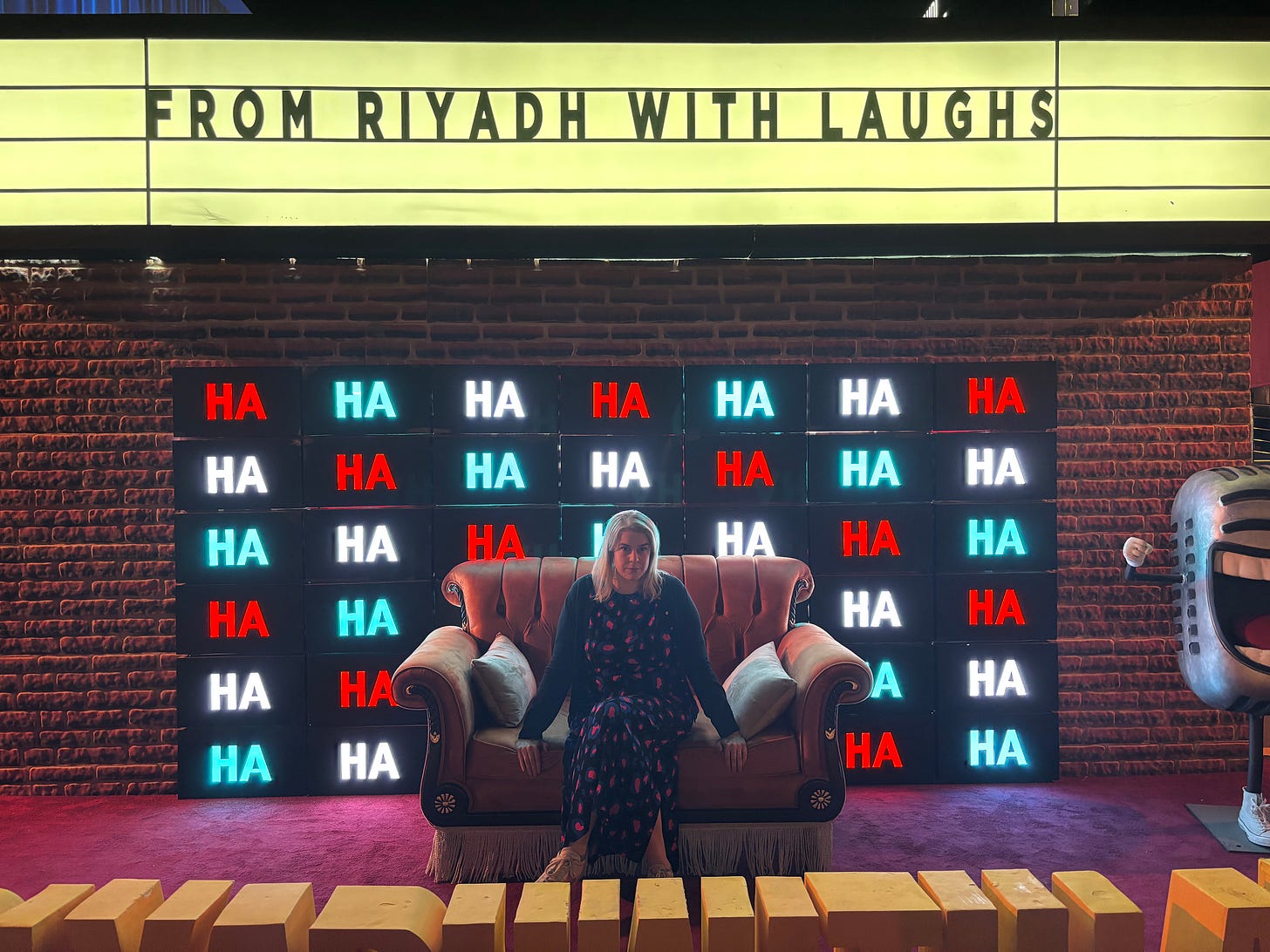
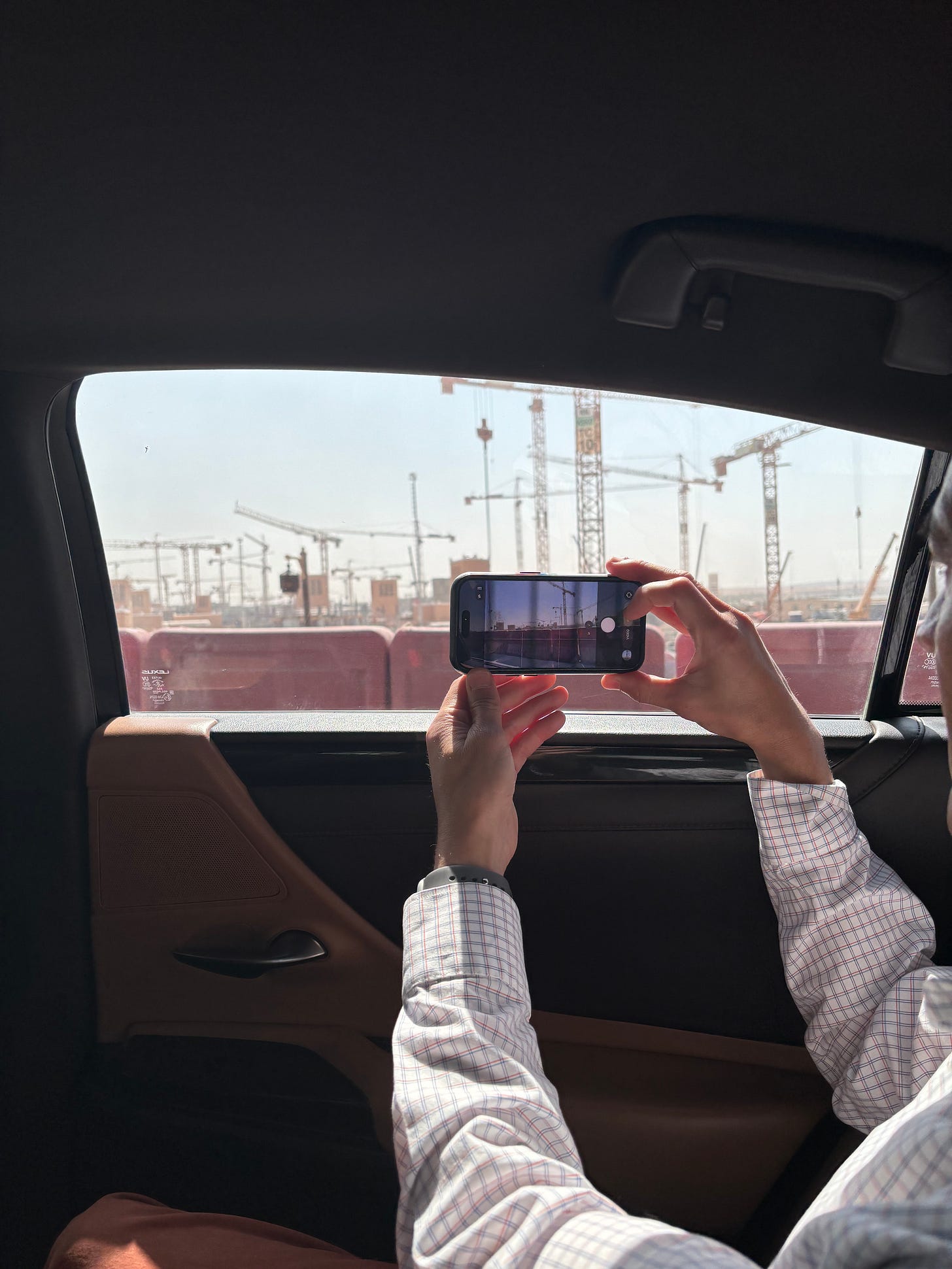
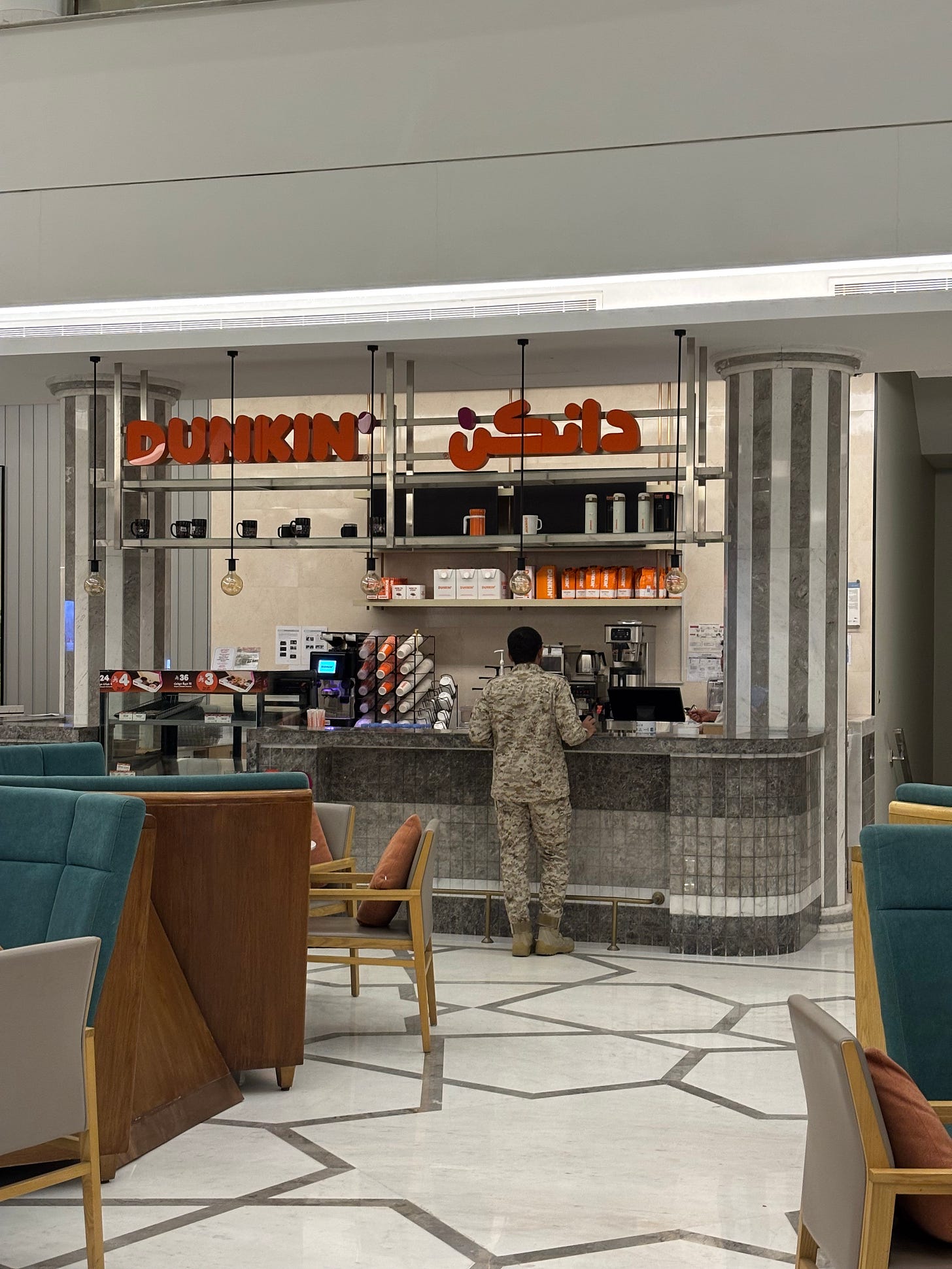
I grew up in Singapore, a country where the people have arguably, taken the deal of “Louis CK and a comfortable life instead of the vote”, and I’m struck by some of the similarities of a single autocratic figure just moving a country towards modernity through policy and force of will. LKY was different in crucial respects from MBS but I imagine that Saudi Arabia wouldn’t mind being compared favorably to Singapore.
Did you see that the Gustave Courbet painting on the cover of The Genius Myth is going on display at the Musée d’Orsay?
https://www.instagram.com/p/DPwjL8HDkW5/?igsh=a3lyd3hrNDNybGY5